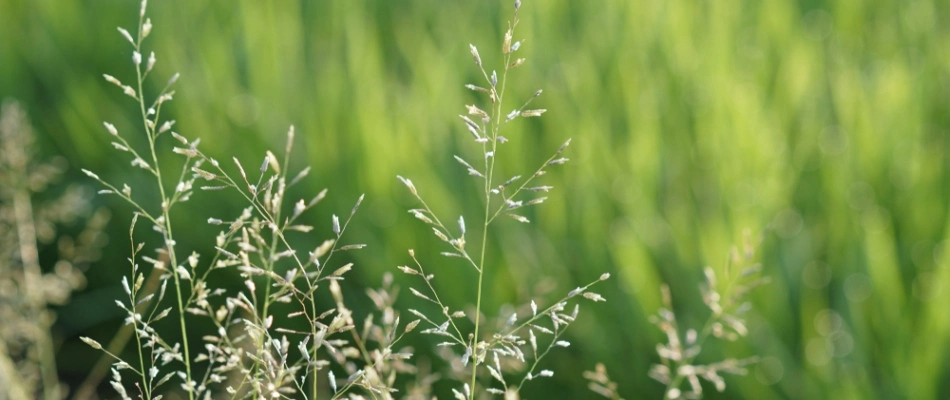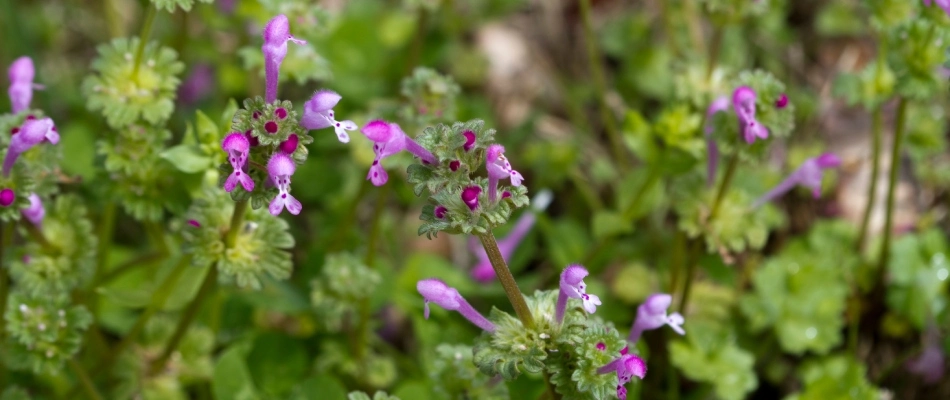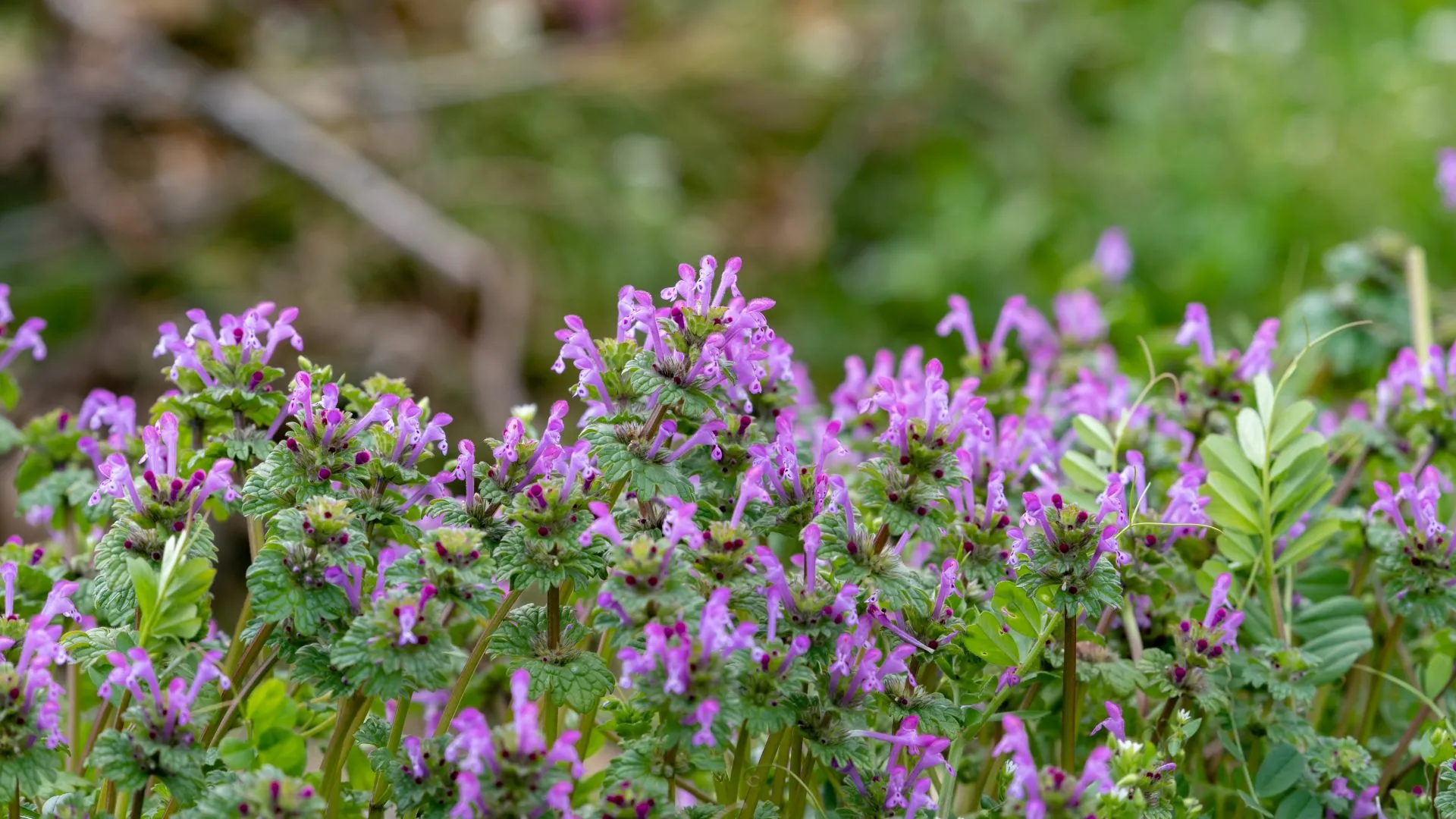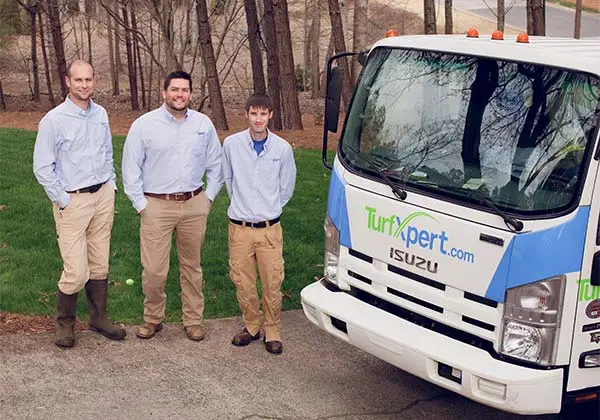Winter annual weeds like bittercress, annual bluegrass, and henbit are commonly found popping up in lawns in Georgia. These weeds can not only bring down the curb appeal of your lawn, but they also can compete with your grass for nutrients and essential resources. Identifying these weeds is the first step to protecting your lawn against them. From there, you can take the proper measures to eliminate these weeds from your lawn. Keep reading to learn more about bittercress, annual bluegrass, and henbit.
Bittercress weeds can survive the cold winter season.
Bittercress, often called hairy bittercress due to its hairy leaves, is a winter annual weed commonly found in Georgia. Winter annual weeds like this start germinating in the fall. The hairy bittercress weed has outstanding winter hardiness, which is why it can survive the cold temperatures of the winter season. If you notice this weed on your lawn, you need to be careful around it because it can spread up to 1,000 seeds.
The key to managing the growth of hairy bittercress is to prevent the seeds from germinating. This means applying pre-emergent herbicides to prevent this weed from getting a foothold in your lawn. This weed can also be controlled through post-emergent treatments, but preventing this weed from growing is always easier than treating an existing infestation.
Annual bluegrass weeds thrive in Georgia.

Also known as Poa annua, the annual bluegrass weed is a common foe of lawns in Georgia. Spotting this weed is easy due to its fine-textured and bright green leaves that mostly appear in the spring. However, annual bluegrass actually starts establishing in your turf in the fall when soil temperatures drop to less than 70 degrees Fahrenheit. This weed will continue to survive in the winter and return in the spring to form seed heads.
Annual bluegrass weeds spread rapidly. Because of this, controlling its growth can be tough. Applying pre-emergent herbicides in the fall before the weed starts to grow is the best way to control this weed. However, you can also rid your lawn of this weed through post-emergent weed control treatments.
Henbit can produce up to 2,000 seeds that can remain dormant for many years.

Henbit is easily identified by its purplish square stems and red to purple flowers. This invasive weed can grow up to 16 inches tall and is commonly found in lawns in Georgia. This winter annual weed starts growing in the fall, shoots flowers in the spring, and then dies off when temperatures get warmer in the summer. Controlling henbit is tricky. Despite its short life cycle, henbit can produce more than 2,000 seeds that can remain dormant for 25 years. This weed thrives in moist soils and the fibrous roots of henbit make it extra challenging to control this weed. Signing up for a weed control program is the best way to combat this weed and eliminate it from your property.

Henbit is commonly confused with its cousin the purple deadnettle, which has triangular stems.
Give us a call today to sign up for our weed control program.
At TurfXpert, we offer a weed control program that targets invasive weeds including henbit, bittercress, and annual bluegrass. This program combats weeds using both pre-emergent and post-emergent treatments, so we can attack weeds from every angle. We offer our weed control program to residential, commercial, and HOA property owners in Woodstock, Roswell, Alpharetta, GA and throughout the surrounding areas. Give us a call today at (833) 444-8873 to sign up for our weed control program. We look forward to working with you to help you achieve a weed-free lawn.




Comments (0)
Thanks for your comment!
Thanks for your feedback! Your comments have been successfully submitted! Please note, all comments require admin approval prior to display.
Error submitting comment!
There is a problem with your comment, please see below and try again.